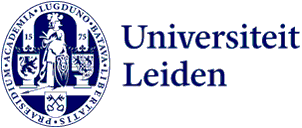
The importance of an interdisciplinary approach to open information provision in palliative care
What if seriously ill patients do not want to hear their diagnosis? Does a clinician always need to provide a patient with all available information? Communication researcher Liesbeth van Vliet, medical anthropologist Annemarie Samuels and research intern Fiona Brosig will put these questions on open information provision on the agenda during an interdisciplinary meeting with social scientists, bioethicists, patient representatives and specialists in oncology and palliative care. Next to the expert meeting they also organize a public debate event in De Balie on the 9th of February. Four questions about this meeting, open information provision and the need to tackle this topic interdisciplinary.
How did your collaboration start?
Annemarie: ‘It was Andrea Evers who connected us. Liesbeth has been working on communication in advanced illness and palliative care and I’m working on a similar topic with the ERC project Globalizing Palliative Care. It was fascinating to discover that we had converging research questions that we were both addressing from different disciplinary perspectives.’
Liesbeth: 'Psychology, communication and anthropology do not collaborate that often, but they do complement each other in fascinating ways. We thought we could learn a lot from each other so we wanted to combine our knowledge and bring even more disciplines together. We were very excited that were granted the Early Career Partnership of the Koninklijke Nederlandse Akademie van Wetenschappen (KNAW) last year to organize this expert meeting.’
What did you learn so far from working together?
Annemarie: ‘It has been inspiring. Approaching a topic from just my own discipline can only answer particular questions in a particular way. Other disciplines raise new questions and new dilemmas that we perhaps would not see so sharply if we would stick to a mono-disciplinary perspective’
Liesbeth: ‘It has been very enriching. It’s inspiring to work on things you care about with others that equally care about these matters but through a different lens. Open information provision in healthcare is one of those topics where you need to have an interdisciplinary group, otherwise you will never be able to truly understand its layered dimensions. There is not one single answer, but looking from different angles broadens our vision and helps us to address complex questions.’
What is the aim of the expert meeting?
Fiona: 'We did a literature review and have asked all experts to write reflections to get at their personal views on this topic, based on their expertise and experience. Research and publishing are always a little bit behindpractice, because you need to first get the idea, then collect data, and so on. That takes some time. The reflections reveal an eagerness among these experts to increase sensitivity in healthcare communication.’
Annemarie: ‘With this meeting, we hope to create a framework and start the conversation about this topic. The literature mostly says that open information provision is better and that healthcare workers should give as much information as possible. Yet, what we are seeing is that some people prefer not to know everything. Or they don’t want to know their diagnosis at all. How do we deal with that?’
Liesbeth: ‘The big question for healthcare workers and physicians is: how do you know what fits each individual? How do you approach and connect to people if they don’t want to talk about it (yet)?’
Why is open information provision in health care such an important topic?
Liesbeth: ‘It’s a question that will affect all of us, there is no way of escaping this topic. We all have to think about this, it’s relevant for both society and individual people. But it’s not a one-size-fits-all approach, and if we fail to address this, we risk that inequalities in healthcare provision at the end of life will increase.
Annemarie: ‘Often the socially and economically deprived people are missing out on their needs. If we only focus on open information, we expect a lot from people. It’s a very social issue: how are we going to ensure that we provide high-quality care also for people who don’t wish to talk about everything?’
Public event ‘I’m afraid it’s rather bad news’ at De Balie Wednesday 9 February 2022
Are you interested in this topic? Join the public debate event ‘I’m afraid it’s rather bad news’ at De Balie in Amsterdam on the 9th of February!
During this meeting, experts with different (medical) backgrounds and patients will discuss the future of the bad news conversation. What do patients and their families need from their doctors? Is it better to be as transparent as possible about disease diagnosis and prognosis, or does this depend on the individual context? More information about the programme and ticket sales can be found on the event page of De Balie. There will also be an online – free – livestream.
Date: 9 February 2022
Time: 19:30 – 22:00 (CET)
Location: De Balie – Amsterdam – there will also be a live stream
Tickets: 13,50 euro available via De Balie.
